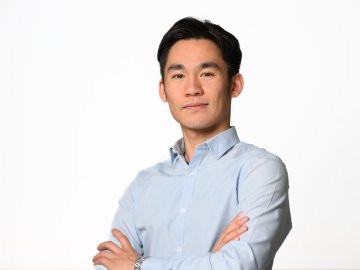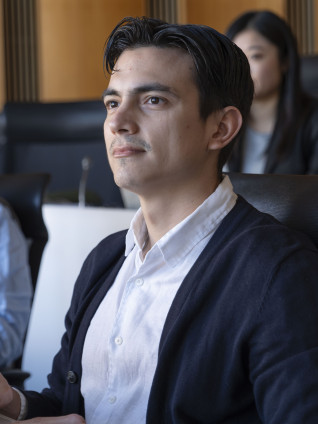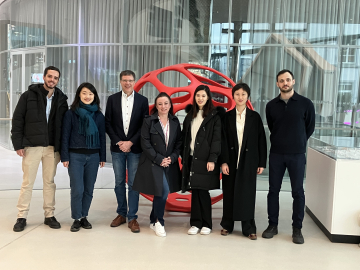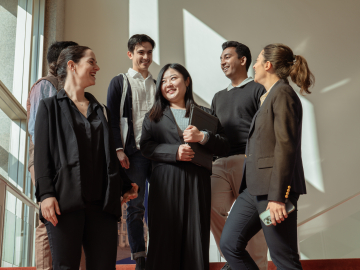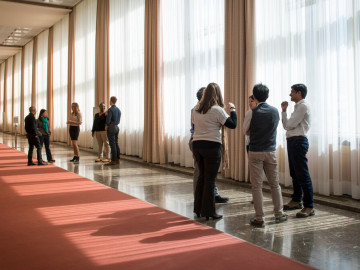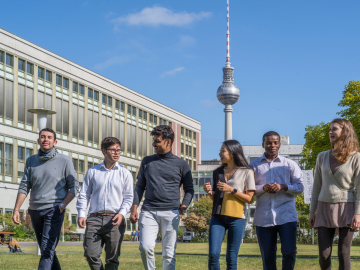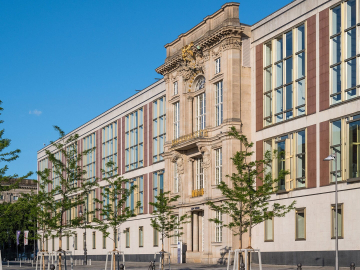
Visit us on campus and get €300
Meet us in Berlin – join an Open House or an on-campus chat and we will even pay your expenses: you'll get €300 off if you enroll in an MBA program.
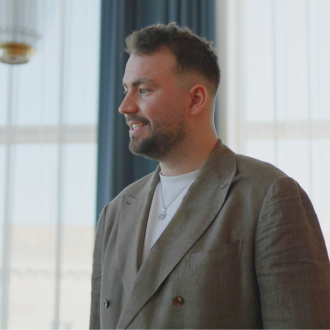
Everyone comes from different countries, industries, and backgrounds, so you’re constantly exposed to new perspectives
Even though I’m German and studying in Berlin, the experience feels very international. The program being fully in English and the diversity of the cohort really shape how you learn. Everyone comes from different countries, industries, and backgrounds, so you’re constantly exposed to new perspectives.
You understand that there isn't one right way to a solution...and you learn to be a bit more open minded. You also get to know other fields, like consulting, tech fields, entrepreneurship
Join an MBA event
Event highlight: ESMT Open House
Join us to explore ESMT's historic campus, meet our community, and learn more about the impact our Full-time MBA can have on your future career.
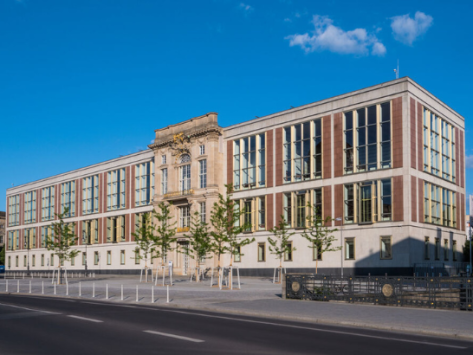
Global events for prospective students
09:00 - 11:00 | Santiago, Chile
16:30 - 21:00 | Santiago, Chile
10:00 - 14:45 | São Paulo, Brazil
15:00 - 18:00 | Sao Paulo, Brazil
Want to learn more?
Find out more about the ESMT Full-time MBA program by visiting us on campus or attending one of our recruiting events near you. This is your chance to meet an ESMT Berlin representative or current student and bring any questions you might have about the school or the program.
